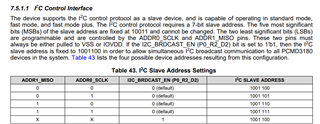Tool/software:
I'm working on developing a PoC with PCMD3180 as MIC and LPC5516 as speaker.
I want to integrate the PCMD3180 driver with LPC5516.
If I can get startup code in FreeRTOS version to use PCMD3180 with LPC5516, then it would be of a great help.
I would also like to know the step-by-step procedure to use the driver.


